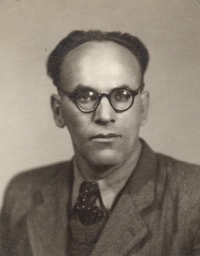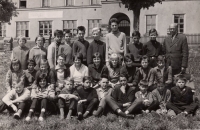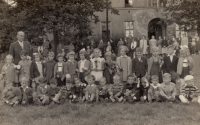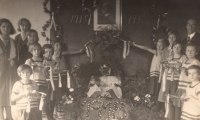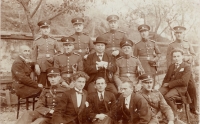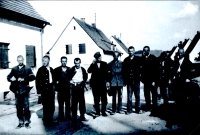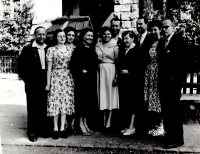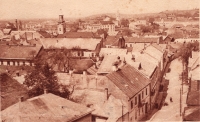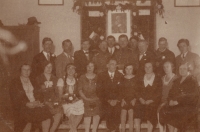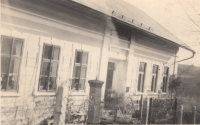Father returned from jail devastated but defended the informer in court
Download image
Ludmila Švecová was born on 2 October 1939 in Vysoké nad Jizerou. Her father, Jan Mecnar, first taught in Subcarpathian Rus and then became a teacher at the municipal school in Stará Ves near Vysoké nad Jizerou. He was arrested in 1941 for listening to a foreign radio, for which he could have been sentenced to death. Ludmila’s father spent two and a half years in prison in Bayreuth. He returned in an impoverished state and with lifelong health consequences. After the war, the informer was tried, but the good-hearted Jan Mecnar did not demand any punishment for her. Ludmila Švecová witnessed the liberation in May 1945, but also the deportations of the original German inhabitants. She and her brother joined the renewed Scouts and read the stories of the Swift Arrows. After 1948, her father lost his job because of his political views and the family had to move to Hostinné. In 1956, the witness successfully completed her studies at secondary school and joined the ČSAD company in Vrchlabí and later in Hostinné. Because she did not agree with the occupation by the Warsaw Pact troops, she was transferred to a different and lower paid job. Later, due to increasing pressure, she left for an eye clinic in Nové Zámky, where she stayed until November 1989. She signed the petition “A few sentences” and wrote a letter in its defence. She sent it to the radio station Svobodná Evropa, where it was read out with her name on it. In November 1989, she attended a mass on the occasion of the canonization of St. Agnes of Bohemia in St. Vitus Cathedral in Prague. After her return, she put up posters and leaflets in support of the Velvet Revolution. In the 1990s she worked for Catholic Charity, a job she considered the most meaningful in her life. In 2023 she lived in Hostinné.
